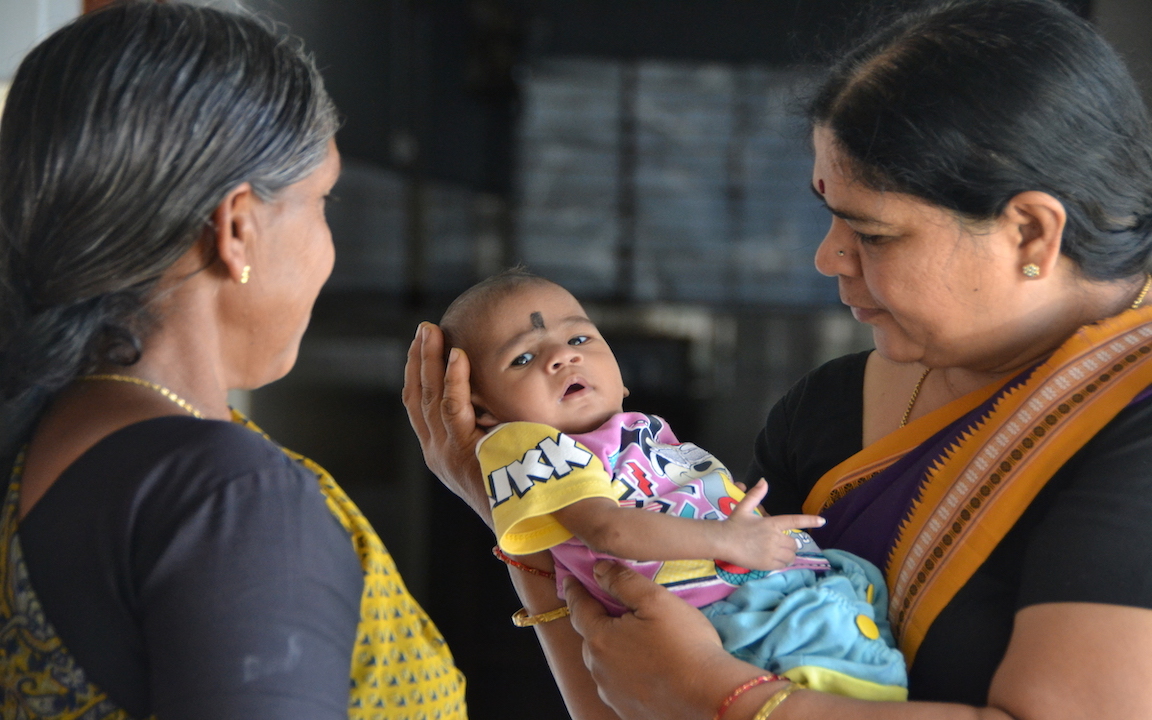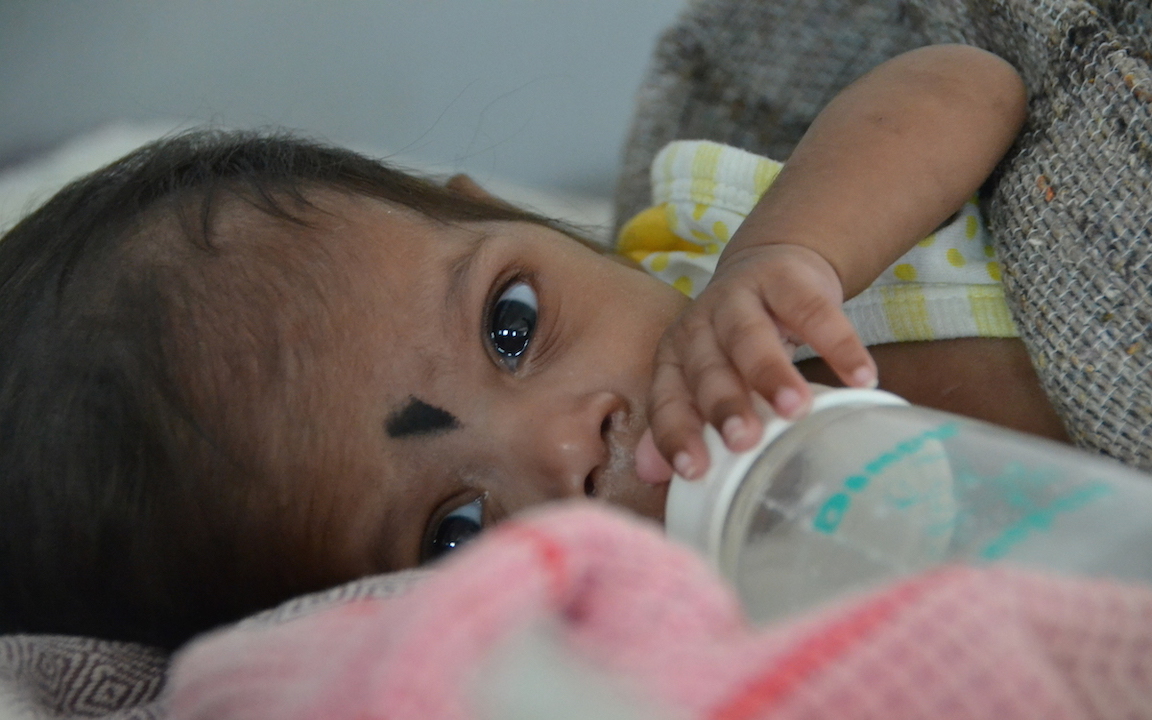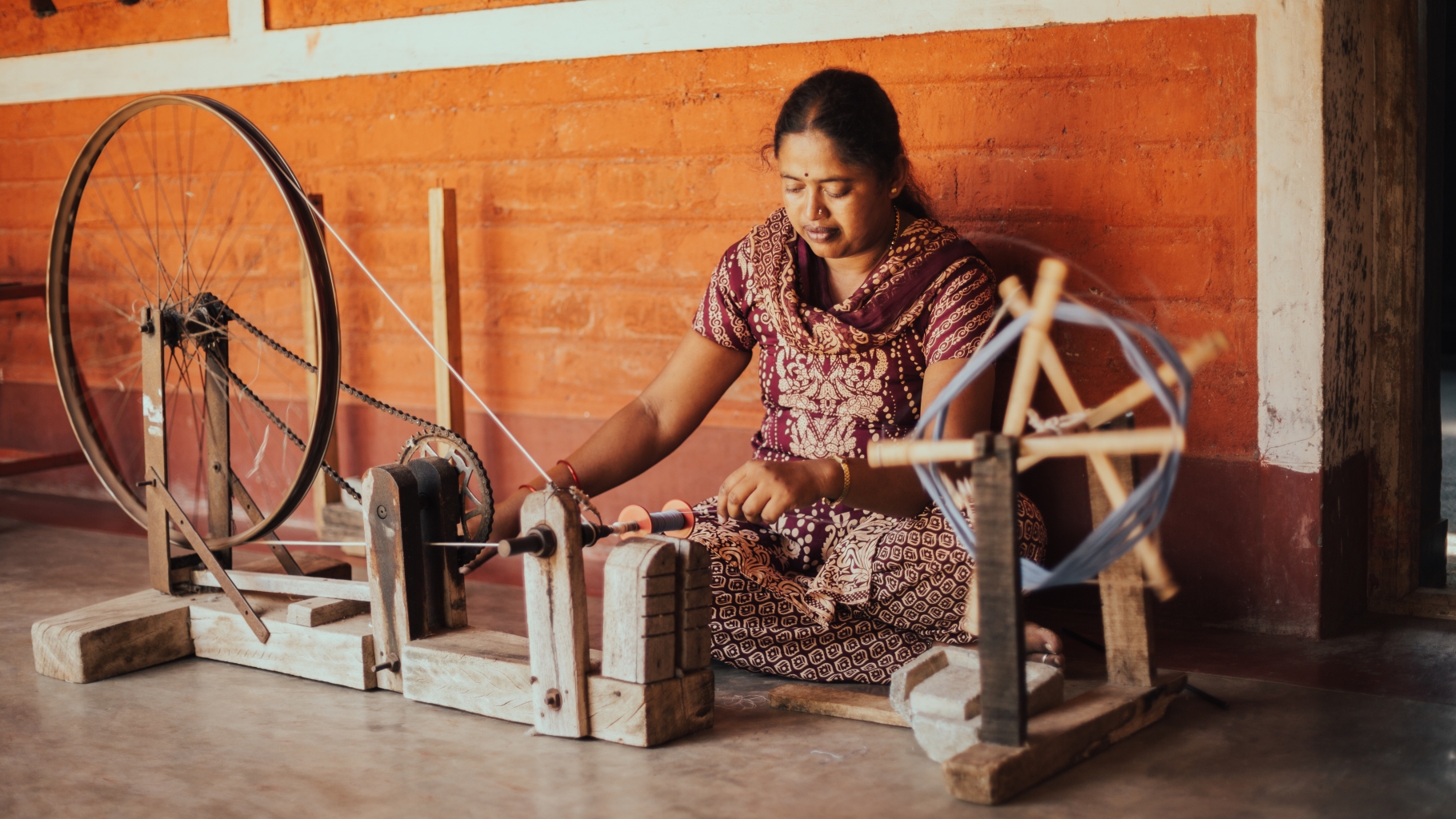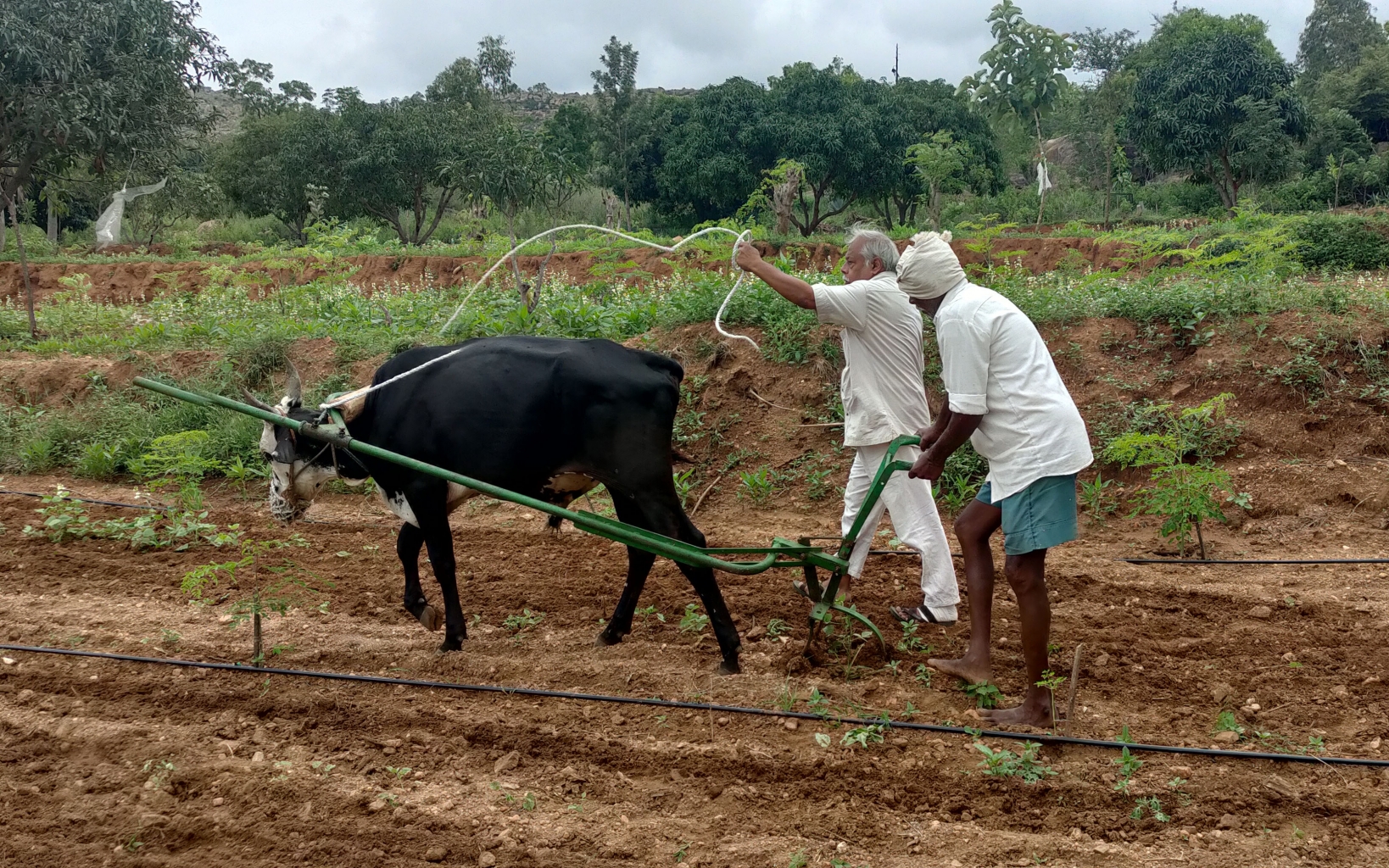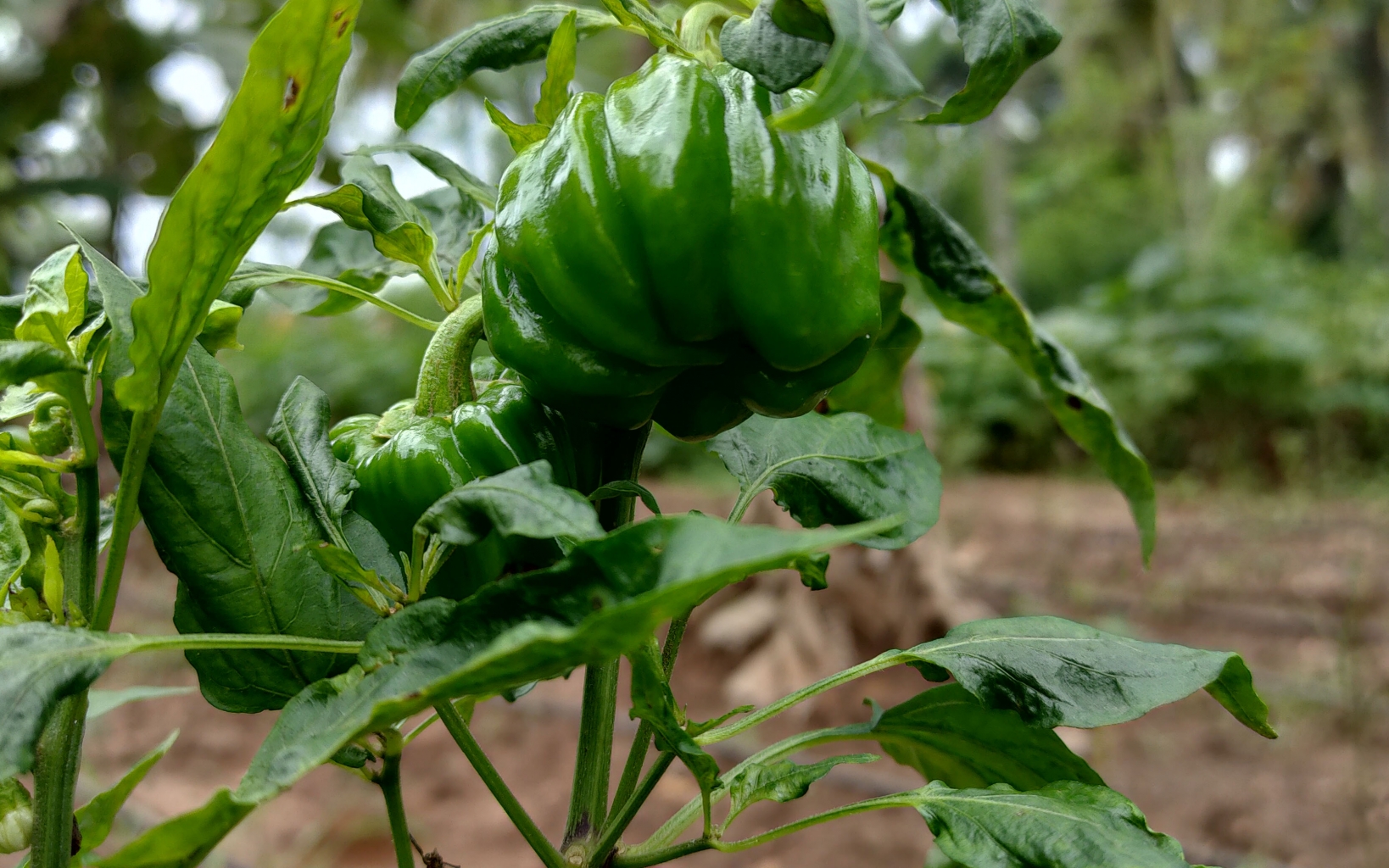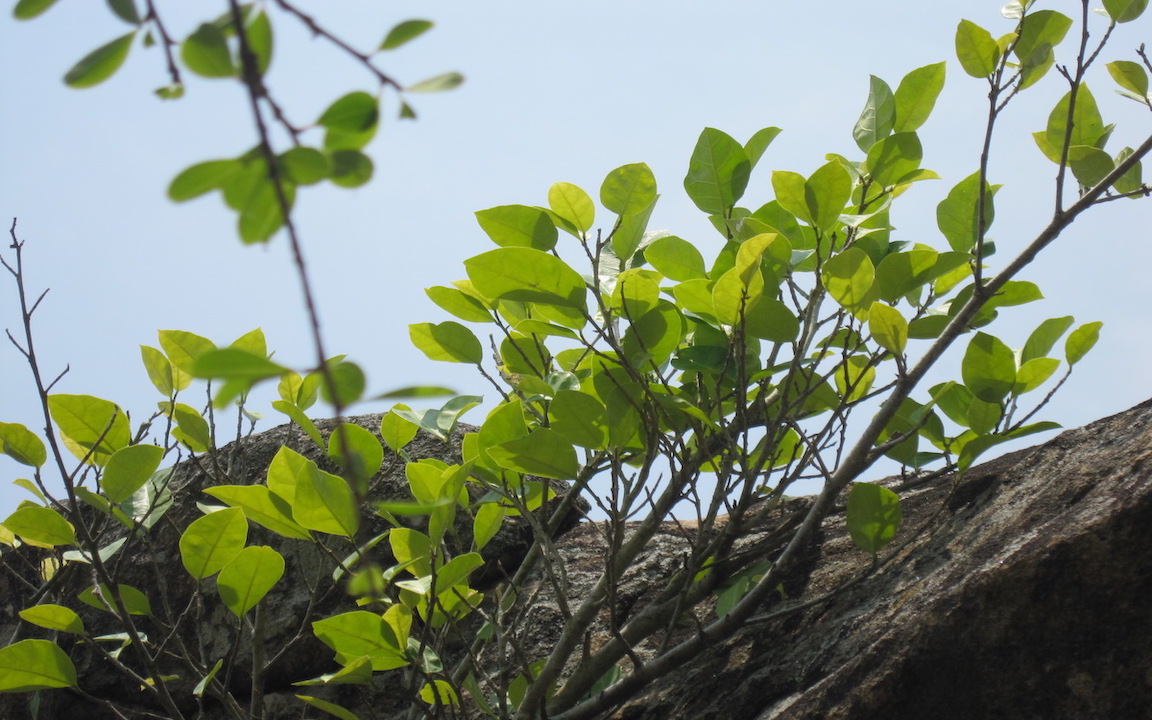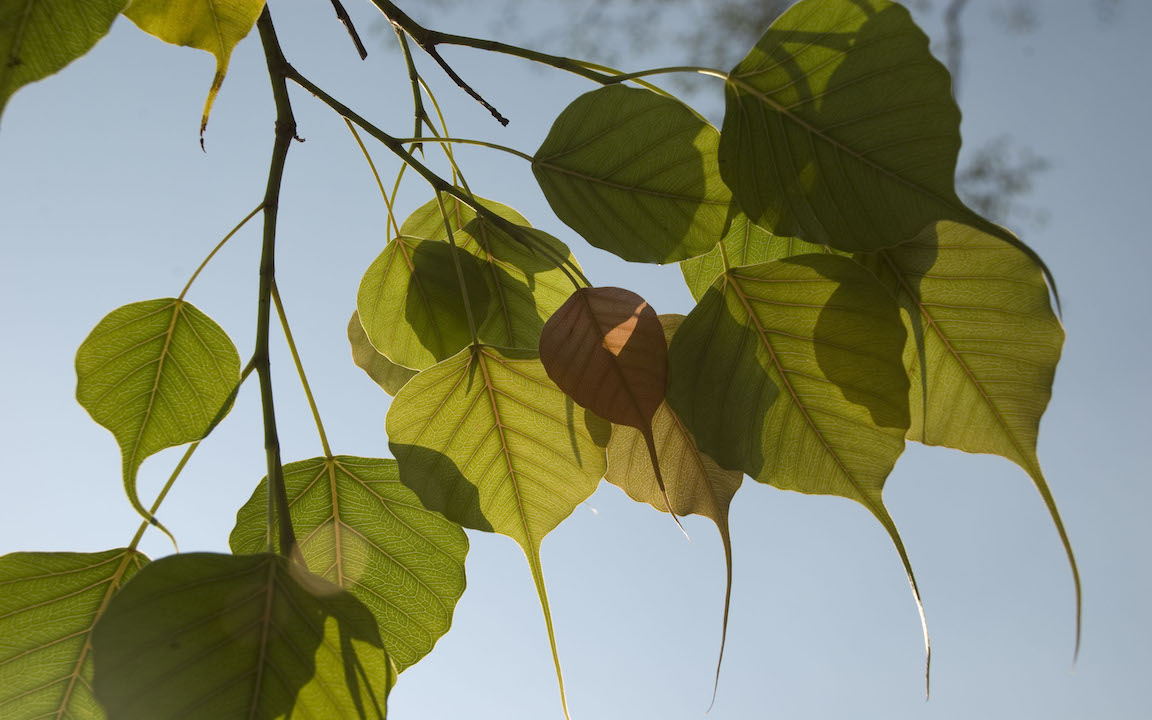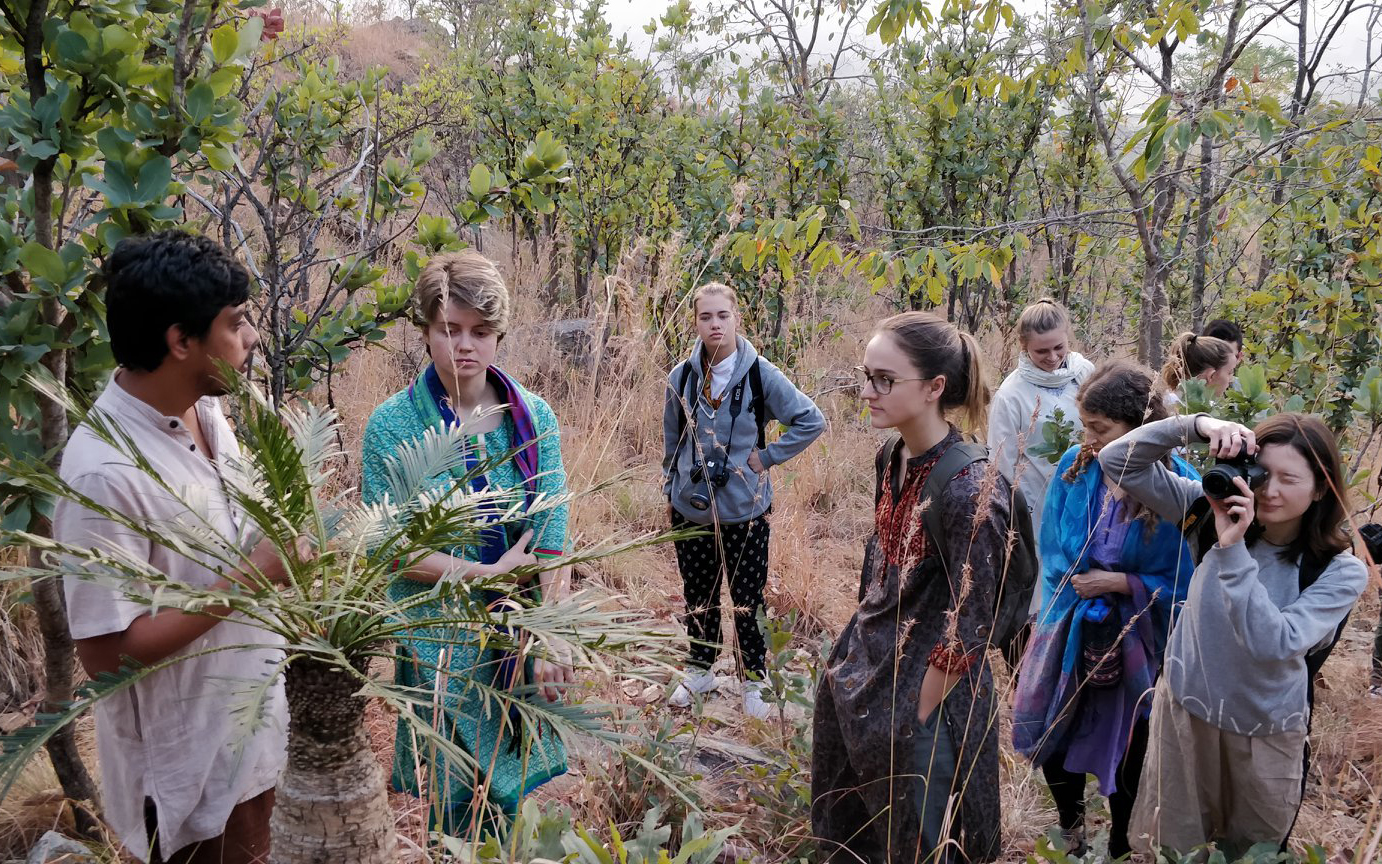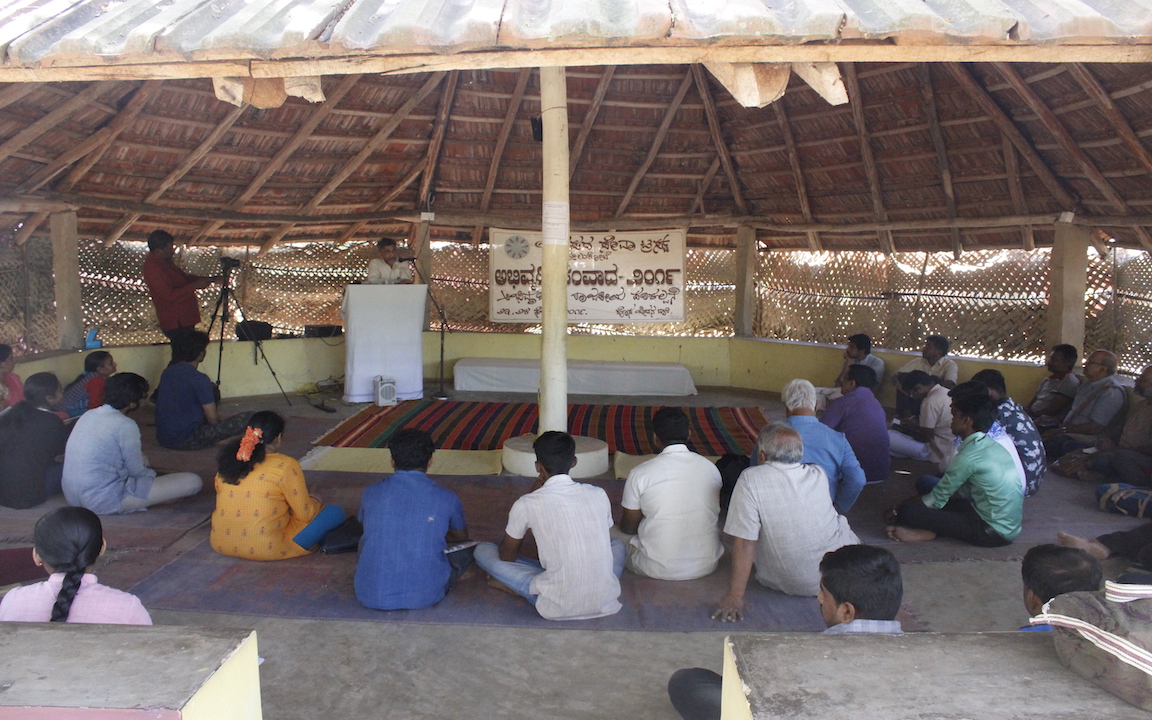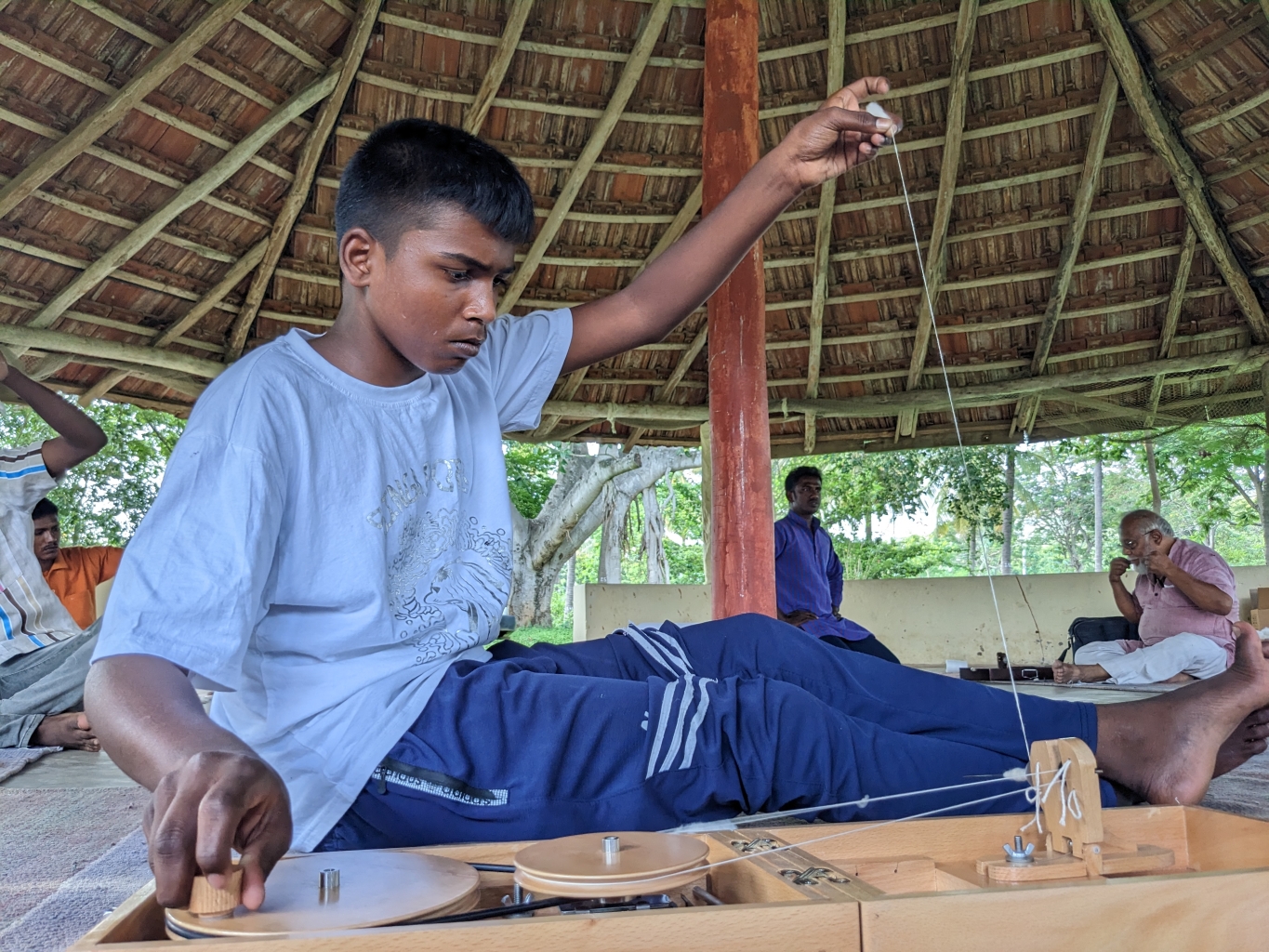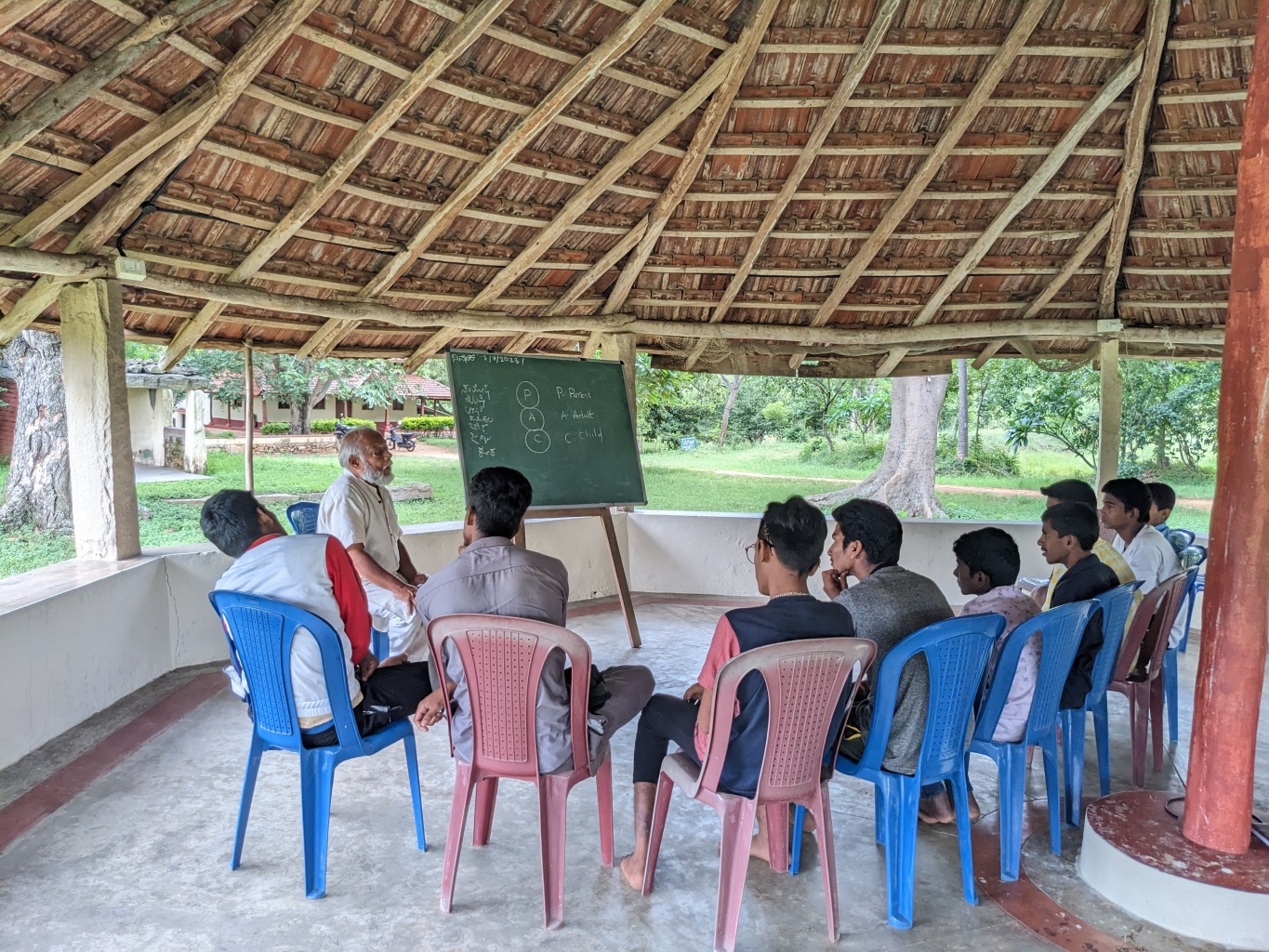About
Janapada Seva Trust (JST) is a voluntary organisation established in 1960. Its activities are in and around Melkote, a small town in Mandya District of Karnataka, India. Inspired by the ideals of swaraj (self-rule) envisioned by Mahatma Gandhi and his associate economist J C Kumarappa, the Trust has been striving from the day of its inception towards creating a non-violent social order.
Sri. Surendra Koulagi and Smt. Girija Koulagi, a young couple established JST with support of their friends. In last six decades the Trust has seen sweeping changes in society in general and Melkote in particular. However, it has stood in thinking and action to its original objective of creating a non-violent social order. It has emerged as an organisation driven by ideology rather than by projects or activities. Over the decades the Trust has responded to the needs of the community and initiated several activities which have lasted from years to decades. This approach has ensured that even after decades no activity of JST has become stale, ineffective, or rigid in its approach.
To know more about our six decades long journey, please watch a short documentary below
Adoption Placement Centre
The Karunaguha, the ‘home of compassion’ was started in 1963. First four decades it worked with hundreds of rural disabled children particularly polio affected. It provided shelter, food, education, and medical rehabilitation. By the turn of the century the number of polio cases drastically came down, thanks to polio eradication program. From 2009 Karunagruha began to work as an adoption placement centre. Child Welfare Committee of state Govt transfers abandoned children in the age group of 1 day to 5 years to the home. Children are provided care and protection and placed for adoption after fulfilling all legal requirements.
Janapada Khadi
The production of Khadi fabric under the brand name of Janapada Khadi is an important activity of the Trust. The activity is recognized by KVIC, Govt of India with the certificate number KNT/3452. Janapada Khadi seeks to resuscitate Khadi not only an aspirational choice of clothing, but as a tool for creating a non-violent social order for a sustainable and equitable future. Janapada Khadi evinces the spirit of swaraj (self-rule), a philosophy that centers freedom of individuals to regulate their own lives without harming one another. With human energy (the energy expended by the human body that enables manual work) at its core, Janapada Khadi ensures negligible harm to the environment and the humans in its supply-chain. The brand also strives to rearticulate the fabric in the form of versatile, contemporary and timeless pieces that are non-violent in letter and spirit. You can now wear this spirit on your sleeve by purchasing our products at https://janapadakhadi.com
Janapada Fair Food Initiative
Today, agriculture is in crisis. In other words, we are in the middle of a civilizational crisis where farmers are losing their life due to the lack of fair remuneration and consumers are losing their health because of unsafe food. So, there is a need for collective action by farmers and consumers to establish a swaraj food system that frees farmers from uncertain income and frees consumers from unsafe food. Such an effort requires both of them to understand the lives of each other and discharge their respective dharma or duties – dharma of ensuring safe food by farmers and dharma of ensuring fair price by consumers. The Janapada fair food initiative is an effort towards setting up such a replicable swaraj food system.
Nene Bana
Climate change and biodiversity loss are considered as the most critical challenge that humanity is facing at the moment. If the actions are not taken to fix these global problems, our planet may become inhabitable by 2050. It has become evident that, planting trees across the world is one of the biggest and cheapest ways of taking carbon dioxide out of the atmosphere to tackle the climate change. As trees grow, they absorb and store the carbon dioxide emissions that are driving global heating. A worldwide planting programme could remove two-thirds of all the emissions from human activities that remain in the atmosphere today. However, such plantation drive should prioritise indigenous trees over exotic ones as they support biodiversity, which is our life supporting system. If we lose them, we will be lost too. Therefore, it is not just for the government, but also for each and every responsible individual and organisations to take measures to bring back the green cover with native trees.
We in Melkote over the last three decades have seen the wilderness around us disappear at a dreadful speed. Many native species were lost before we understood our precarious situation. Most of the trees disappeared because of the demand for firewood and for timber. To meet the increasing demand the government began introducing exotic species like Eucalyptus and Acacia. Although the new species helped to meet the demand to some extent, over the years they have taken over the entire area and led to monoculture with little space for biodiversity to thrive. At this context, trust is striving to convert 10 acres of its land into a grove of native fig trees, which are the major carbon sinks, foremost oxygen producers and foster rich biodiversity. This program is named as ‘Nene Bana’ (forest of reminiscence), the landscape that always be remembered by the one who visits.
What are figs?
Fig trees belong to the family of Moraceae. They have radiated throughout the natural world, evolving into hundreds of unique species suited to a variety of environments. It comprises more than 850 species, making it one of the world’s most varied plant families. Fig trees come in all shapes and sizes and have been found in some of the most remote corners of our Earth; from mountaintops and rainforests to deserts and volcanic islands. They are woody trees, shrubs or vines. Some species, known as giant banyans, grow to be so large, a single plant can be mistaken for an entire forest. The largest specimen of which grows in India, spanning over four acres. The plant’s canopy is so expensive, it’s said 20,000 people could stand beneath it.
Why are figs important?
The copious fruit production by fig plants have made them a prolific food source for surrounding wildlife. Unlike the majority of plants which produce fruit seasonally, Ficus can bear fruit all year round. This means that, when seasonal fruits are sparse, there is always a fig tree with ripe fruits for frugivores (fruit-eating species) to fall back on during leaner times.
A huge variety of frugivores (fruit-eating animals), from birds to squirrels, reptiles to monkeys are dependent on the fig for survival. A staggering 1300 bird and mammal species consume figs, sustaining more wildlife than any other known fruit. Because of the critical role figs play in maintaining wildlife populations and supporting ecosystems, the plant is what’s known as a ‘keystone species.’ If we remove them, we risk disrupting the entire ecosystem. Reciprocally, establishing keystone species in habitats may be an especially powerful means of catalysing their recovery. The fig trees create the conditions where that complex biodiversity can come back by itself. Attracted by the prospect of a juicy reward, frugivores flock to a fruiting fig plant, bringing with them seeds from plants they have eaten and encountered elsewhere. Milling around a bountiful fig tree, frugivores deposit these seeds – either in their droppings or by shedding those attached to their bodies, thus introducing a complex and diverse range of plant species back into the system. In short, figs act as a catalyst, accelerating the forest’s natural recovery process. The result is a healthy and dynamic regrowth. Therefore, figs can help us repair lost forests, protect biodiversity and curb the Earth’s fast-changing climate.
The five indigenous fig species such as Ficus amplissima, Ficus drupacea, Ficus racemose, Ficus religiosa, Ficus benghalensis have been planted at a distance of 40 feet each. In between following 30 indigenous tree species have been planted.
Acacia catechu, Acacia feffuginea, Acacie nilotica, Alangium salvifolium, Albizia amara, Albizia lebbeck, Bauhinia recemosa, Bombax ceiba, Butea monosperma, Cassia fistula, Careya arborea, Hardwikia binate, Holarrhena pubescens, Holoptelia integrifolia, Liminia acidissima, Michelia champaka, Madhuca latifolia, Pheoix sylvestre, Pongamia pinnata, Pterocarpus marsupium, Sapindus pinnata, Syzygium cumini, Terminalia arjuna, Terminalia bellirica, Terminalia chebula.
In total, about 300 fig saplings and 300 other local tree saplings have been planted as a part of the project. The landscape is expected to be the biggest fig grove in the region and act as a resource place for Janapada payana, the short term outreach programs that are regularly conducted by the Trust. In short, it is a place as much for the people of the Melkote region as well as for visitors from outside.
Janapada Payana
It is a short term outreach programs (two nights three days) offered to public. The programs takes place at Hosa Jeevana Daari (way to new life), a distinct centre that was set up by the Trust in 1980. It is a place which is in complete harmony with nature, and involves low cost eco-friendly housing. Programs on following themes are being carried out under Janapada Payana.
Connecting back to nature: Today, with children’s lives disconnected from the natural world, their experiences are predominately mediated in media, written language and visual images. The virtual is replacing the real. The loss of children’s outdoor play and contact with the natural world negatively impact the growth and development of the child and their acquisition of knowledge. Children’s development with little or no regular contact with the natural world is seen as a process of socialization by which children come to see themselves as separate and not a part of the natural world. This has become the primary cause of environmental crisis and inequality that we are facing today. It has become evident that empathy, which is essential to tackle these problems grow out of children’s regular contact and play in the natural world. In this context, the program aims to connect children back to nature and encourages them to be one with the world.
Swaraj and development: Every day, we hear thousands of statements about this phenomenon called ‘development’. It has become a global faith in recent times and is considered as the means to achieve human prosperity. Development is seen as a way of improving the human condition. It is evident that the notion of power and material accumulation is at the heart of the dominant development paradigm. On one hand, this has created enormous material wealth while on the other hand, it has engendered violence in the form of environmental crisis, inequality and alienation. It has become clear that any failure to address this violence would eventually lead to the collapse of human civilisation. At this critical juncture, the swaraj development paradigm proposed by Mahatma Gandhi and his associate economic thinker J C Kumarappa has a potential to rescue our civilisation from breakdown. In this context, the program intends to encourage public particularly younger generation to appreciate and embrace swaraj way of living.
Jeevana Shaale
It is a four-years training program for children of 14 – 18 years of age. This age group is specifically chosen because it is a transition phase where children develop into adults. During these years, adolescents increase their ability to think abstractly, and eventually make plans and set long term goals. It is a stage that seeks leadership (someone to inspire him or her), and gradually develops a set of ideals to live by. Ten children who are interested in constructive livelihoods have been selected. These students are being trained under the Nai Talim education system of Mahatma Gandhi. In essence, this education is expected to enable them to govern themselves, inspire them to be their best and encourage them to lead others by example. The Nai Talim system of education recognises the knowledge found among the people. It also appreciates ordinary life and the work of farmers, artisans, small retailers and so on as knowledge-generating activities. It acknowledges the dialectical relationship that is present between material production and knowledge production and thereby emphasises democratising knowledge and making the development project inclusive for all. The key features of Nai Talim education employ human energy based vocations as the medium of instruction, around which all other intellectual subject matters are taught. It gives equal emphasis to physical work as well as intellectual work.
Students spend few hours every day with the chosen human energy based occupations like agriculture and allied industries and earn their pocket money. This has made them to understand the lived reality of people who are sustaining themselves through such livelihoods. Another component of the program is teaching basic Kannada and English languages. The objective is to equip students with language skills which are necessary to express themselves, understand what is happening around and also to obtain essential intellectual insights. Further, every day they get involved in yarn spinning activity on charkha and kitchen gardening. We have also designed a module called ‘human history’ that expose them to our own journey from big bang to the present time. It has been recognised that this broader perspective is essential to appreciate human energy based livelihoods. Further, a wide combination of methodologies such as theatre, internships, talks, group counselling, documentary screenings, games, field visits, research projects, interactive activities, nature studies are used to effectively teach the students. Once the participants finish the program, they will be encouraged to sustain through constructive livelihoods.
News
- Weaving together equity and well-being
- Where the charkha still spins
https://www.deccanherald.com/spectrum/where-charka-still-spins-695305.html
- 58 years of social service in the temple town of Karnataka
https://thelogicalindian.com/my-social-responsibility/janapada-seva-trust/
- The flying shuttle of Melkote
https://www.livemint.com/Sundayapp/0sdXIIUg7aXAdhlK13LYEL/The-flying-shuttles-of-Melkote.html
- Fifty and going strong
https://www.deccanherald.com/content/50128/fifty-going-strong.html
- Shri Surendra Koulagi, Jamnalal Bajaj Award for constructive work
http://www.jamnalalbajajfoundation.org/awards/archives/2014/constructive-work/surendra-koulagi
- Spinning a revolution
https://www.deccanherald.com/content/282302/spinning-revolution.html
- Like rivers to the ocean
https://www.harmonyindia.org/people_posts/like-rivers-to-the-ocean/
- ‘Self-rule’ outside Bengaluru since 1960; Janapada Seva Trust’s Gandhian success story
Support
JST is cruising valiantly solely due to the unstinted support of friends and well wishers. Over the past six decades, this was source of strength and inspiration. The commitment to swaraj values has never been compromised even once and on the contrary the resolve has deepened with each passing day. It has emerged as a reference point to many new initiatives. It has carved a distinct space since it is driven by ideology and not by programs. It has cast away a few programs, embarked on a new set of activities in tune with the changing times, but responding from a strong ideological base. ST has several dreams to realize its goal of helping to usher in an era of sustainable living and ethical practices. Your help and contributions will go a long way in creating a non-violent social order.
Legal Status and Tax Exemption details
Janapada Seva Trust (JST) is an organization registered under Socities Registration Act. It is also recognized under:
- Section 80G of the IT Act 1961 (No.PRO.718/10A/BOL/BI.J20, dated 31 Jan 1976) – where any Indian donor is entitled to claim deduction from their taxable income to an extent of 50% of the donation amount.
- JST also has a permanent registration with the Ministry of Home Affairs, New Delhi to receive foreign contributions under the Foreign Contributions (Regulation) Act. (No.: 094580018—Educational and Social, (NO.II/21022/69/ (834)/85-FCRAIII, dated 6 Sept 1985).
To make an online contribution (in-country only), please click https://www.onlinesbi.sbi/sbicollect/icollecthome.htm?corpID=3602156.
You can also support JST’s efforts by letting others like yourself know about its work.
Contact
Address:
Janapada Seva Trust
Kalyani ST, Melkote – 571431
Pandavapura TQ, Mandya Dist
Karnataka, India
Email: janapadasevatrust@gmail.com
Phone: + 91 / 08236 299854 / + 91 9900537434
Location:
Write to us:

